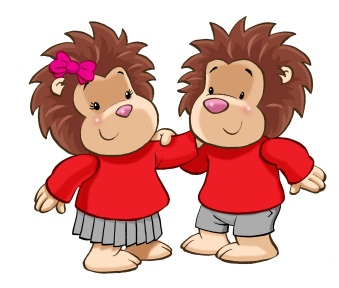History
At Parklands Community Primary School we are historians!
Intent
At Parklands Community Primary School, we aim to provide a History curriculum that excites and intrigues our children while meeting the needs of all backgrounds, cultures and abilities. The children’s historical learning journey has been designed to cover all of the skills, knowledge and understanding as set out in the National Curriculum. To ensure that pupils develop a secure knowledge that they can build on, our History curriculum is organised into a progression model that is broadly chronological and follows five fundamental golden knowledge threads that underpin all lessons. These threads are Leadership; Conflict; Society; Advancements; Legacy. Across the year groups, the children will be taught about a range of historical events, where they take place within a historical timeline and famous historical figures who have shaped the world today. Our lessons will encourage pupils to develop an appreciation of the past, evaluating a range of primary and secondary sources to give an insight about how people around the world used to live and how these interpretations may differ. At Parklands, our intent is to develop engaged, motivated and curious learners that can reflect on the past and make meaningful links to the present day.
Implementation
At Parklands Community Primary School, History is taught through a topic driven approach with emphasis on the high-quality delivery of knowledge, enquiry and skills. We enable teachers’ autonomy to use the National Curriculum to select objectives and tailor teaching and learning to meet the needs and interests of all children in their class. We aim to implement the following to successfully meet our intent:
- Each class has a long-term plan which drives our History teaching. The KS1 curriculum is led by at least three historical topics and KS2 explore two over the year. The implementation of the ‘Golden threads’ will ensure a continuity of experience and facilitate progression through the year groups. Retrieval and recap tasks to monitor knowledge will be used. History will be linked to other areas of the curriculum (particularly Geography, Art and English) to develop children’s wider knowledge and encourage them to see connections between subjects.
- Class Teachers will follow the long-term/medium-term planning to ensure high-quality teaching and the use of effective differentiation to promote positive pupil progress. We will use assessment for learning to ensure all lessons are relevant and will help to plan for next steps. Subject leaders are given regular time to ensure resources are kept up to date, to monitor the subject across the school, create action plans and to provide subject feedback to SLT.
- Where appropriate, we use historical artefacts, visitors, workshops and trips to excite and intrigue our children to find out more about events and people from the past. We aim to give our children as much understanding as possible about what life was like in a particular period in history by having immersive, practical lessons, such as dressing up, re-enacting moments from the topic and whole school experiences like “Kings and Queen’s Day”
- Opportunities for classroom-based discussions around what children already know about a historical period or person and what else they want to find out, will begin each topic. Using exciting hooks, such as “Now Press Play”, will help to make children engaged from the outset. Children will be provided with the opportunity to complete History topic-based homework tasks to add challenge and increase understanding.
- Each topic will have key vocabulary that will be displayed around the classroom to support the development of children’s geographical language.
Impact
At Parklands Community Primary School, pupil voice shows that children are confident and able to talk about what they have learnt in History using subject specific vocabulary. Pupils enjoy History and are able to recall their learning over time. Children build on their historical skills and knowledge through consistent focus on the golden threads and use of the progression of skills document to inform teaching. Work shows that a range of topics are being covered, cross curricular links are made where possible and differentiated work is set as appropriate. Children are given the opportunities to celebrate their learning in History by sharing work with peers, staff and parents. The school environment is ‘history rich’ through displays, resources, vocabulary mats and trips. As historians, Parklands’ children will learn lessons from the past to understand their place in the world, to help influence the decisions they make in their future
